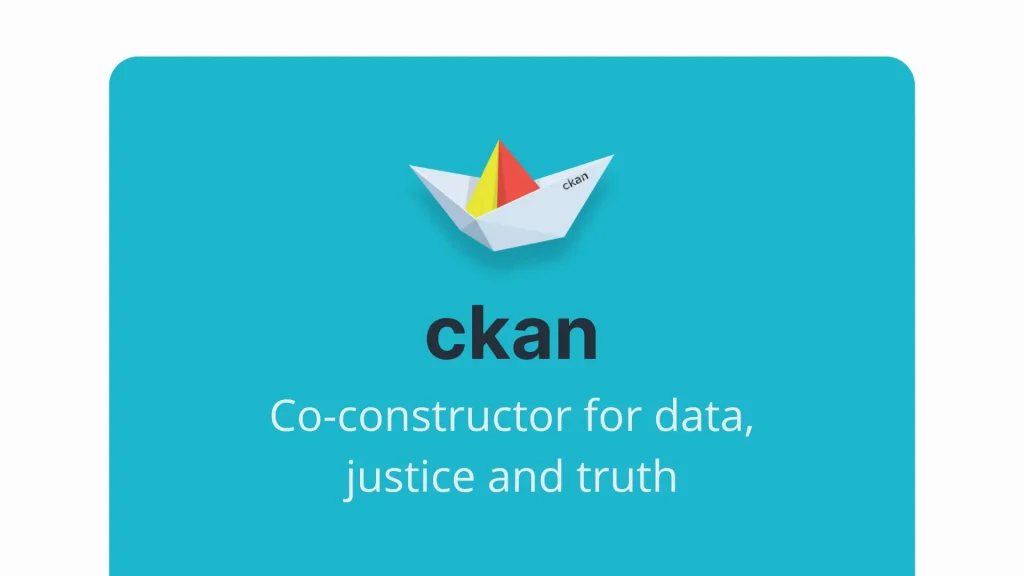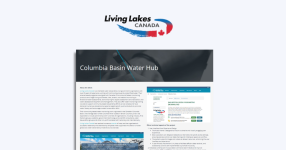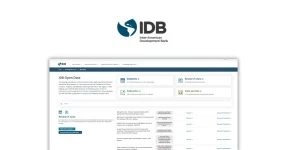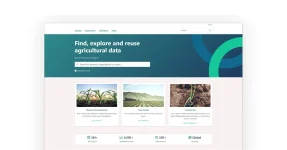
We are at the point of impact, according to Steven De Costa, Co-steward of CKAN and Chairman of Link Digital, in that the data portals we’ve built are not just repositories but potential launchpads for our shared, open, and civic futures. What potentially flows out of this situation was the subject of De Costa’s presentation at the latest CKAN Monthly meeting, in mid-July.
CKAN – the Comprehensive Knowledge Archive Network – is a sophisticated piece of open source software launched in 2006 that can be configured and set up to function as an open data platform once it is deployed and hosted on a web server. CKAN has established a significant social and technological footprint as the key component of some of the largest and most successful open data portals around the world. It is also the centre of a global network of data practitioners.
But, according to De Costa, both the software and the community around it can be much more.
CKAN as a sleeping giant
Referring to it as “a sleeping giant,” De Costa posits that CKAN and its global community can do more to meet the key challenges we currently face: the need for a truly Responsible AI, the rise of digital authoritarianism, and the difficulty of building a greater shared understanding of social justice. Indeed, he believes CKAN can be a co-constructor for justice, agency, and truth and, in this way, a key player in developments such as shaping responsible and equitable AI futures from within the age of open data.
The data is not just data,
he told the forum.
The software is not just software. There’s always perspective, there’s always context.
In this respect, he maintains
the portals that we are building, they are not just data repositories.
They are also the people around them and the way that they can act as launch pads for better civic technology and public and civic outcomes.
A key example offered by De Costa is how the community approaches responsible AI and the use of data in it. It can act defensively in response to this challenge, walling off open data from irresponsible AI appropriation. But it can also be proactive, using CKAN to help create positive datasets that will be good for machine learning and create positive outcomes for society because they have been cleared for responsible AI outcomes.
Using constructor theory to rethink data
De Costa referred to constructor theory as one framework that might be helpful in terms of helping the CKAN community rethink the role of data in shaping what societies believe is possible. Constructor theory expresses physical laws in terms of which physical transformations or tasks may be possible or impossible, and why. The core concepts are
- Constructor: An agent or system capable of causing a transformation (e.g., a funding body, a policy).
- Substrate: The entity being transformed (e.g., a dataset, a community, a project), but also an underlying substance or surface or material on or from which something grows or changes.
- Task: The transformation itself. A record of what is possible versus impossible.
In this model, CKAN and the open data ecosystem are a kind of substrate. Looking at CKAN as a constructor helps us move from an understanding of what data is to what data does.
It is useful for a data-oriented community that is thinking about how data connects with things like AI, and what might be necessary political and technical procedures and tasks and models related to this.
De Costa used a case study to try to illustrate his arguments, a project he was putting together for the Global Data Barometer Visualisation Challenge. The Challenge invites users to put together creative ways of exploring the Barometer’s data to help tell powerful stories about data for the public good. And he explained how his project was aimed not just at visualising the data contained in the latest iteration of the Open Data Barometer, but visualising the process of the data’s creation and the physics of its constructors. This included tracing the flow of influence, funding, and ideology through the data ecosystem.
Taking it back to CKAN, De Costa maintains:
It is not just about cataloguing data it is about understanding the full substrate of value creation that a tool like CKAN can create in that substrate.
A call to build
There was a lot more in De Costa’s presentation, which can be watched in full here. But arguing it is vital for us to move from being passive data publishers to active co-constructors of our future, he ended his presentation with a call to action or, as he put it “a call to build”. He invited people working in open data to become what he called “Odious Xers”—pioneers who collaboratively shape the future through agile, impactful “block builds”.
They can do this by joining the group he has set up, which aims to bring people together in two-hour sessions twice a week, every Friday and Sunday morning, Australian EST time
The idea is to try and start to generate
a coalition of intent to build civic tech and build towards social outcomes… that is driven by the agency of individuals, rather than being driven by funders or technology or in reaction to politics.
And in doing so, it presents an opportunity to unite efforts under a shared purpose – to use the unique position of the community around CKAN to build a more equitable world, one dataset, one transformation, one “block build” at a time.
Are you keen to take the user experience of your open data portal to the next level?
Contact us and one of our experts will be in touch.
More articles
- CKAN Roadmap: stability, speed, and 3.0
- How to create custom chart previews on CKAN for faster data insights
- The Objective Observer Initiative and the challenge of being fully open
- Link Digital’s contribution to Croissant 1.1 expands AI research’s global reach with multilingual metadata
- Enhancing user journeys: better navigation control in CKAN



